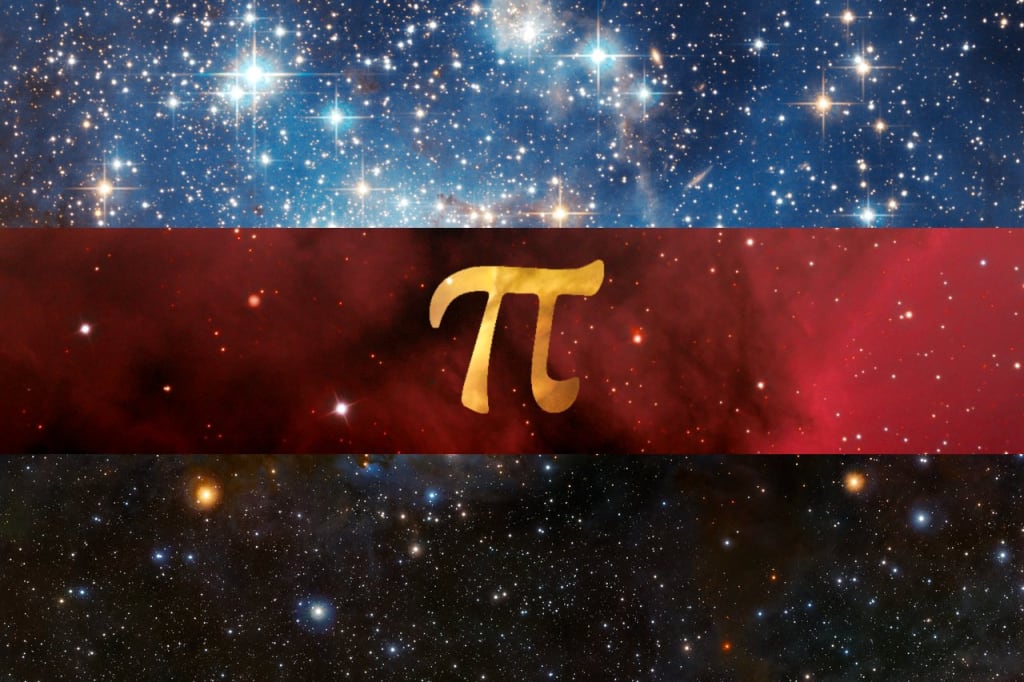"Where Did That Come From?" VENUS VALLEY Goes to Greece (part 2)
Queer Philosophers' Forum, pt. 4

Welcome back to my book-in-progress! For those who've just got here, let me explain where "Here" is...
Chapter by chapter, my learning & teaching LGBTQIA+centric viewpoints on philosophies & philosophers will be released to you, queerly beloveds, and your inputs will become edits as you debate, discuss, question, contribute, til the finished work speaks with all our genderfluid bisexual voices. Come join us again, gentles & lady-men, in VENUS VALLEY: Queer Philosophers' Forum.
For an intro to what a Hegelian Dialectic is, and how my philosophy content is one, between "Old Christian Me" and "New Queer Me", click HERE;
For a reading & watching list to get into the roots of my perspectives on sex, politics & religion, click HERE;
For an intro to what Deconstruction is, and how mine led me here to Ancient Greece, click HERE;
And finally, for part 1 of our trip to Ancient Greece, and why we're probably not doing it justice by calling it "Ancient Greece", click HERE.
Anyway, we'll go with "Ancient Greece " for now, because that starts us off with a question for our brains to play with...
Do we call something by its "proper" name, even if that doesn't make it clear to everyone what we're talking about? Or do we let an "improper" name stand, because everyone's clear when & where we're talking about when we say it?
No we've got our minds warmed up... If you've read part one of our Ancient Greek trip, you'll be here because I promised we were digging in to the far-right's favourite monster under the bed - Critical Race Theory.
And Queer Theory, while we're at it.
Because they're the two types of Critical Theory that everyone's heard of.
And yes, we are getting to Ancient Greece in a minute, I promise!
Critical Theory is an absolute cornerstone of philosophy, especially when we have to cast a queer eye over the sexual, political and religious logic & ethics we grew up with.
The status quo - literally "the state we're in" - is the status quo in the first place, because we've been brought up to think, or feel, like it's the normal, natural, neutral way to be - but there was a time when it wasn't; there will be a time when it won't be; so why just say "that's just the way it is"? Why not ask questions?
That, as basically as it gets, is Critical Theory. It's easier to ask those kinds of questions, if you're on the outside; so how about we start by looking at what our status quo looks like, in the eyes of the people it treats as "outsiders"? An "outsider" race or ethnicity? That's Critical Race Theory; an "outsider" sexuality or gender identity? That's Queer Theory.
Yes, that's it. It sparks off a whole galaxy of debates and activisms, but right at its core, that's literally all it is. Why that's something to be afraid of, is anyone's guess!
So wouldn't it be a fun way to start digging in to critical theory, if a lot of our arts, science, music, sports, schooling, medicine - things that make our status quo what it is - came from, and keep bringing us looking back to, a foreign culture that was queer as heck?
Well, look at that - here we are in Ancient Greece!
My own simple critical theory philosophy, is that there are two ways of treating something that's outside the "normal" & the "ordinary". The opposite of normal, is ABNORMAL - something to look DOWN on; but the opposite of ordinary, is EXTRAORDINARY - something to look UP to. Identities like those we know today by names like Genderfluid, or Bisexual, were looked up to, not down on, more often than we might think - past and future articles of mine look at them across the history of the world; and Ancient Greece is an absolute mother lode.
HERMAPHRODITE comes from the union of HERMES and APHRODITE, the deities related to the planets Mercury & Venus; occupants of the space, from our point of view, between the Moon - the divine feminine - and the Sun - the divine masculine.
HERMES also gave his name to HERMETICS, a medieval mixture of spiritualism and science, one of whose ideas was the DIVINE ANDROGYNE - the distant past, and destined future, state of humanity in the heavens; APHRODITE, meanwhile, gave her name to APHRODISIACS.
SAPPHIC and LESBIAN both come from SAPPHO of LESBOS, who wrote love poetry in her devotion to the Moon Goddess, on an island without men; she's one of the earliest women lyric poets that we know to have existed in the world. The very word Lyrics, meaning the words of a song, comes from poetry like hers being composed for the Lyre, an early kind of harp. Later sources have her simply playing a part in the stories of the men around her - father, brother, lover, husband, son - but they're all pretty historically doubtful; her supposed dad, "Skamandronymus", literally translates to "unknown/random man's name"!
HIPPOCRATIC OATHS, taken by medical practitioners, come from HIPPOCRATES, a kind of "founding father" of modern medicine, who taught his students and his patients a Grey Scale of Sex; where masculine and feminine women, and masculine and feminine men, stood either side of an androgynous midpoint.
PLATONIC FORMS and PLATONIC IDEALS - terms used in sciences as far apart as mathematics and psychology (that we'll go into the philosophy of some other time), come, of course, from Plato. Aristophanes' PLATO'S SYMPOSIUM has Children of the Sun (pairs of men), Children of the Earth (pairs of women), and Children of the Moon (mixed pairs) in bodies joined together until torn in two by Zeus' lightning, and thus wandering ever in search of each other - hence Twin Flames, or Soul Mates. Hedwig And The Angry Inch, a problematic but influential musical movie, retells it in its central song, The Origin of Love, comparing it to the modern day story of Hedwig/Hansel, a teenager left alone at the fall of the Berlin Wall when their "sex change operation got botched".
ACHILLES' HEEL comes, as most people who know much about queer culture and Greek tales already know , from the fatal flaw of The Iliad's hero, Achilles, who fought with a frenzy at the loss of his beloved "close companion" Patroclus, with whom he shared his tent, and his armour. Alexander the Great famously play-acted the story in costume with his own "close companion", Hephaestion; even when the two of them married two women, it was said they intended to each have their own children but to raise them as brothers, as this was the closest they could ever come to having children together. When Hephaestion died, Alexander commanded a mass period of mourning throughout his empire. (But remember not to say they were anything more than close companions, if you don't want to be accused of having a woke agenda!). Oscar Wilde, in his famous trial for "gross indecency", invoked these stories - and their biblical parallel, David & Jonathan - as cases of "the love that dare not speak its name".
APOLLONIAN and DIONYSIAN, the names modern philosopher Nietzsche (another name we'll look into another time) gave to the two sides of Human nature - taking control of your powers, or losing control of your passions - come, to no one's surprise I'm sure, from Apollo & Dionysus. Apollo being a god of light and learning, to this day we still talk about learning in terms of light: we're "bright"; we're "enlightened"; when we explain, we "make it clear"; when we understand, we say "I see". Dionysus being a god of frenzy, festivity, fruit and, quite frankly, fucking, we use his other name Bacchus to describe as "Bacchanalian" anything drunk & disorderly, deviant or diabolical. Same sex unions were blessed in Apollo's temples, and Bacchus/Dionysus' honorific titles range from male to female:
D. Androgynos - meaning he switched from being the active/giving/top/dom, to the passive/receiving/bottom/sub, role in sex rites;
D. Choiropsalas - "pig-plucker" - a figure of speech for playing with the vulva;
D. Enorches - "with balls", meaning fertile; or "in the balls", meaning his rebirth from between Zeus' thighs (this one's from Lesbos!);
D. Pseudanor - literally "false man", meaning feminine.
SPARTAN, meaning life without luxury or leisure, comes obviously from Sparta, a culture where everyone was raised to be ready for war. Soldiers were encouraged to be lovers, so they'd be devoted enough to die for each other in battle; and if they made it home alive, the women waiting to become their wives would dress as men, to help ease the transition from one "lifestyle" to another.
I've barely scratched the surface here. I narrowed the entries for this list down to the ones that gave us modern day terms and phrases, to give you a first taste of looking at where ideas might come from, and where they might go; a first bit of practice in not just accepting, but always exploring, "that's just the way things work these days". And there are plenty more from the histories of other cultures around the world, many of whom now make up the multicultural mixture of our modern western, supposedly majority Christian, culture.
So, don't the walls of the binary boxes of "civilised society", now seem remarkably straight, considering they were built on such queer foundations?
Tracing our history or ancestry back far enough that we run out of reliable written records and end up in the distant and uncertain lands of legend and folklore, is known as FOUNDATION MYTH, or MYTHIC DESCENT. Greek culture has it. So, it seems, does Queer culture.
One quick note from the other side of the table: Once we've started looking at things from a Critical Theory direction, we can cast the same eye over the culture we're looking back on, too - we can avoid slipping into the kinds of backwards thinking that tells us "things would be better if we brought all those old things back". Our Big Queer Greek Field Trip may have been fascinating and fun; but if you were a slave, a woman, or both, you bore most of the responsibility so everyone else could have the sexual, political and religious freedom that gave us the list we've just looked at in the first place.
The point is to look back to a time when the status quo wasn't, so we can look forward to a time when it won't be, and escape from the mindset that it's "just the way it is", and learn to ask, before we accept. Greek thinking from this period of history especially influenced two pillars of what we like to call "Western Civilisation" - Christianity, and Democracy. But we'll be having a look at plenty of other races and religions well outside of those two things, casting our Critical Theory mental fishing-net ever wider as we go along.
(When I tried to think of an example of what I mean, I thought of Percy Shelley's epic fantasy poem Queen Mab. But that's another name we'll have to come back to later - also a master of out-of-the-box thinking, also not very nice to women, just like our Ancient Greek friends!)
~*~
Let me know which of the things I touched on here, that I said we'd come back to later, you want me to come back to first!
~*~
To subscribe to my Vocal profile so you get new chapters first, click HERE;
To join the group on bookface where you can debate, discuss, question, contribute your own thoughts and feelings, click HERE;
If you'd like to contribute by donating, so I can finance the production and promotion of Venus Valley as a finished book, click HERE.
About the Creator
Mx. Stevie (or Stephen) Cole
Genderfluid
Socialist
Actor/actress
Tarot reader
Attracted to magic both practical & impractical
Writer of short stories and philosophical musings






Comments (1)
I come back to the passage where Paul is discussing gender relations &, after twisting both his mind & soul into knots, throws his hands up in the air & exclaims, "I don't know; I just don't know any other way." (paraphrasing, of course) Wonderful article. Every time I hear someone complaining about someone else being "woke" I just want to say, "Thank you, I'd so much rather be awake to those around me than to sleepwalk through our days not caring what they think or feel. I'd so much rather dance with my neighbor in synchronicity through this wondrous world & life than stomp all over their feet with oblivious disdain & disconcern. Why, in heaven's or anyone else's name, would anyone not want to be woke & aware?" The level ignorance most strongly implied by anyone who considers "woke" to be an insult is astonishing to me. And anyone who disdains "Critical Theory" of any kind seems to me to be nothing more than an ill-prepared ostrich sticking its head in the sand, waiting to become the next entry in "The Darwin Awards". Great article, btw. Thanks again for doing this.